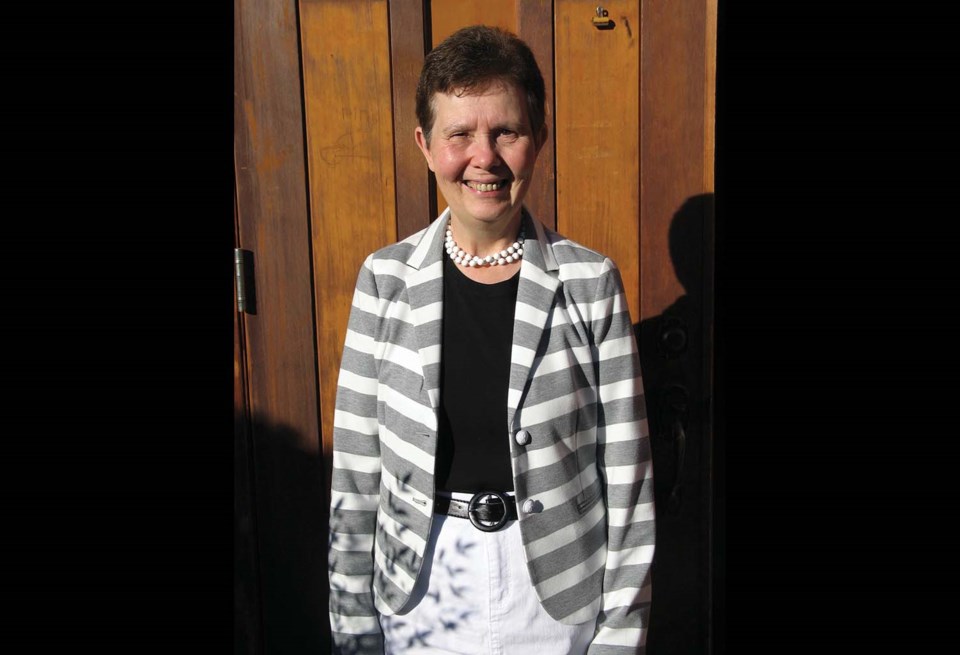When the man you married becomes a stranger trapped in dementia, how do you cope? How can you suppress your own life to attend to his needs? How do you shed the feelings of anger and of weariness? How do you get time to yourself without feeling guilty? These are the themes of Rosella M. Leslie’s latest book, Losing Us: A Dementia Caregiver’s Journey.
Leslie speaks from the heart in describing the dementia journey of her husband John. At first there was denial — “there’s nothing wrong with his mind” — then acceptance of the diagnosis and the administering of medications in hopes of a reprieve. Finally, she soldiered on, taking care of John’s needs at the expense of her own. Married for 36 years, the couple enjoyed their home in Sechelt. During the 12 years that John slowly slipped into dementia, Leslie and her husband continued to do the activities he enjoyed: boating, fishing or going for car rides, until he could no longer manage them. His loving wife kept a diary of the daily strains on their marriage and on her peace of mind.
Through it all John continued to love his wife even asking her to marry him — she had to explain carefully that they were already married. Meanwhile he was becoming a stranger to her, often paranoid or upset or confused. She longed for even an hour of respite from caring for him, and in one poignant passage she describes having to go for her colonoscopy, usually not a pleasant procedure, but in this case a break from attending to John.
“I felt as if I were having a spa day,” she wrote. “Nothing to do but let the medics take over.”
Leslie is an accomplished writer of eight books — most notably the BC bestseller The Cougar Lady and as a co-author with Betty Keller on a history of the Sunshine Coast. Her expertise with her writing craft makes this book read like a powerful novel, yet one that could help other caregivers on their own journeys.
She offers practical advice and asks caregivers to learn from what she didn’t do. Self-reliance is noble, but not if it’s torturing you. Help is out there. Connect with it through organizations such as the Alzheimer’s Society of Canada, local support groups, online talks and books. Friends and family can step in to give valuable respite time, although Leslie writes about others who offer well-meaning help but make impractical suggestions. She had to learn to swallow the frustration, and worst of all, deal with the guilt that maybe she wasn’t doing enough for John or pushing him into uncomfortable situations.
For Leslie there was light at the end of the tunnel — a sweet romance — but before that much darkness.
The author will launch her book on Nov. 3 at 2 p.m. at the Sechelt Seniors Activity Centre. It’s available online at Friesen Press currently a Friesen Press Staff Pick), Amazon and Barnes & Noble. It is also available at Talewind Books, Sechelt, and from the author at www.rosellaleslie.com.



